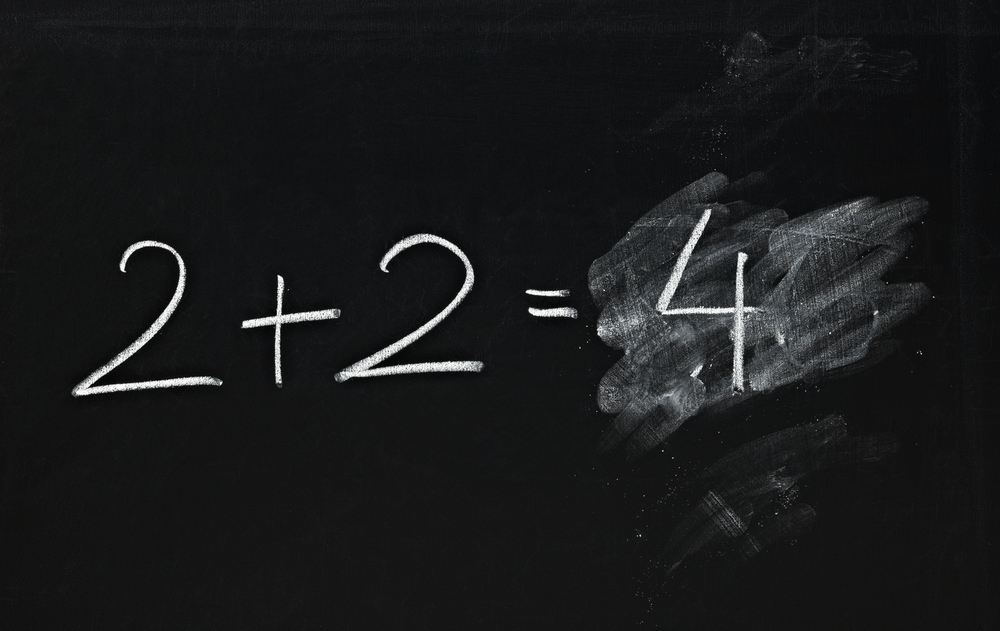 For the holiday season we here at LWON are giving ourselves the gift of confronting our fears. We are writing about our most daunting science-related subjects and why they scare us.
For the holiday season we here at LWON are giving ourselves the gift of confronting our fears. We are writing about our most daunting science-related subjects and why they scare us.
The advice came to me within the first few months of starting as a science writer: always be on the lookout for good math stories, the wonderful Sharon Begley told me. No one else ever covers them, she said, so the niche is wide open for a young writer to exploit. I had loved every little thing about science journalism up to that point, and perhaps working with Sharon most of all. But my gut clinched a little when she spoke those words.
It’s not that I’m math phobic, exactly, nor entirely innumerate. Some of my best friends, favorite colleagues and best-loved family members perform or write about math on a regular basis. And I have no problem calculating tips in my head, say, or divvying up a complicated restaurant bill split nine ways. I studied statistics and economics enough that I can push my way through the analysis sections of most biology and chemistry papers, and follow the logic and mechanics of global climate models and economic forecasting algorithms.
But what I can’t do is imagine mathematics, and that means I can’t write about it, either. I can’t see the stories because I can’t inhabit the numbers in the same way I see others doing it. I can train myself to perform rote arithmetical tasks or, laboriously, follow along when others lay out clearly what they’ve done. But I can’t see where they’re going from the halfway point, let alone derive anything myself. When it comes to the abstract reasoning of higher mathematics, I can’t even spot the difference between false logic and sheer brilliance.
Because even the simplest feats of numerical imagination are beyond me, I also can’t tell what advances are important or interesting, the way I can with less abstract forms of reasoning and research. And because I can’t quite grasp the nature of the challenge, I can never muster the interest or awe others seem to feel when one long-vexing equation or another is finally solved.
(I’m also not terribly interested in lovably eccentric geniuses or faux-profound mumbo jumbo about how fractals explain everything from traffic flow to human consciousness … so really, what math stories are left to me?)*
In high school, I slogged through algebra and trigonometry as most of my friends sailed through advanced calculus. In university, I concluded that I must have a kind of numerical dyslexia – how else to explain my struggles to master higher mathematics, when organic chemistry and other complex subjects came to me naturally? But no. An educational psychologist ruled out dyscalculia. Math was supposed to be hard, she said essentially – not grasping it was the human condition, not a diagnosis.
Today, I see my situation through a different medical metaphor. I understand now that I don’t suffer from an inability to scan or remember numbers, but rather that I just can’t seem to relate to them. Call it mathematical Asperger’s syndrome.
I can recognize numbers, in other words, and I can imitate, with practice, some of the simpler things mathematicians do with them. But just as Dr. Asperger’s patients struggled to form a theory of mind for other people, I can’t feel the passion or humanity others apparently do for numbers and mathematical concepts. I can’t read the poetry, and often enough can’t even see the point. So how am I supposed to find or tell the stories? Fifteen years after Sharon’s advice, I’m still looking for my first one.
__
*Dear internet: this is a joke.
Image courtesy of shutterstock
I have been trying to envision performance math, having just viewed some of my daughter-in-law’s pole-dancing photos, and somehow can’t see math in the same light. How exactly do your friends and colleagues “perform” math?
That’s funny, Gail! I like the image of math as a performance (though I probably wouldn’t be able to appreciate the show at an appropriately deep level). But I just mean that doing complex math is a regular part of their work life as scientists or mathematicians. They perform math the way I perform writing. And yes, when I put it that way I can see how clumsy my writing performance was. I’ll do better next year, I promise!
Also, I just noticed how off-handedly you mentioned your daughter-in-law’s pole dancing. Isn’t New Year’s Eve a little early for a May pole?
Two points you might find interesting:
Mathematicians say that what they are doing and what scientists and others are doing in applying mathematics in their work are fundamentally different activities. Read Paul Halmos, Mathematics as a Creative Art or G H Hardy, A Mathematician’s Apology, two easily Googlable articles about the field. Hardy is longer and more dogmatic.
At least parts of modern mathematics have arrived at a point that even experts in the same field can sometimes not know if a new and important claim is right without years of work:
http://www.bostonglobe.com/ideas/2012/11/03/abc-proof-too-tough-even-for-mathematicians/o9bja4kwPuXhDeDb2Ana2K/story.html
You have no hope.
Happy New Year!
Thanks for the comment, Joel. It’s a classic example of the comments-are-better-than-the-posts phenomenon here at LWON!